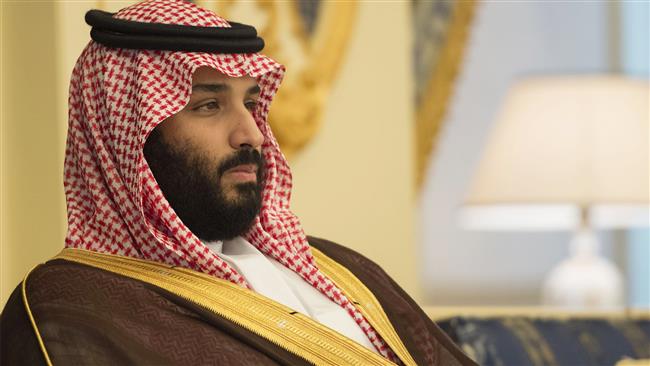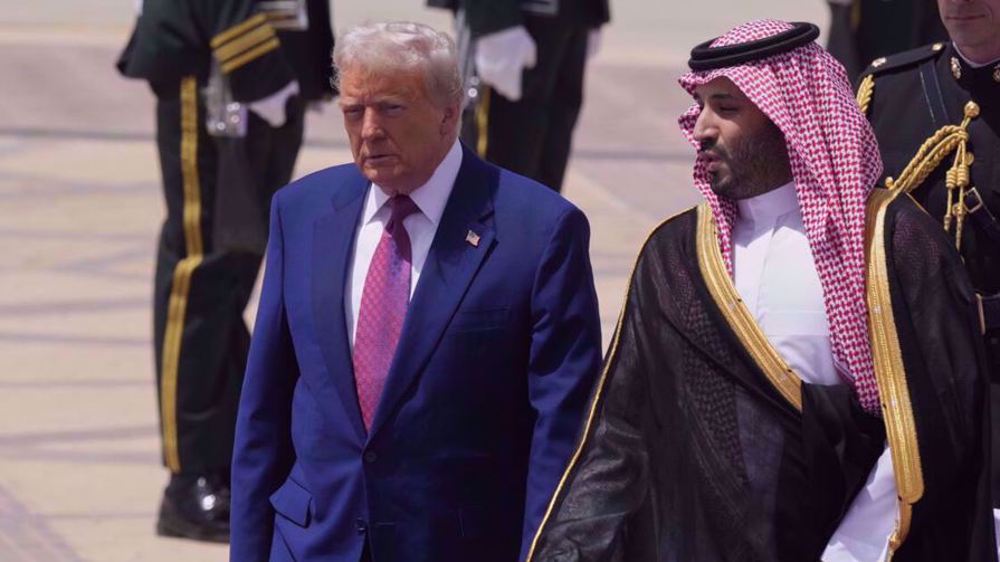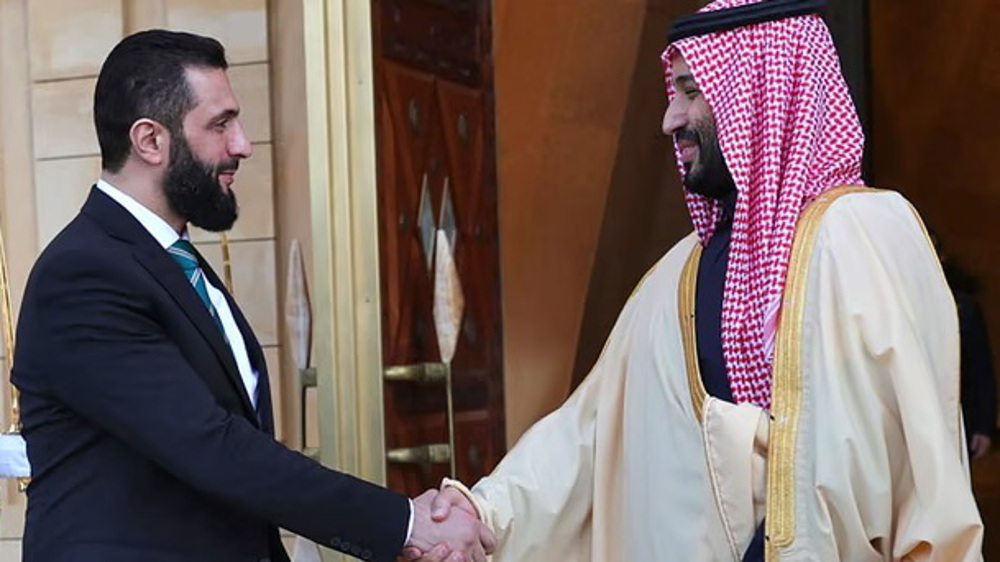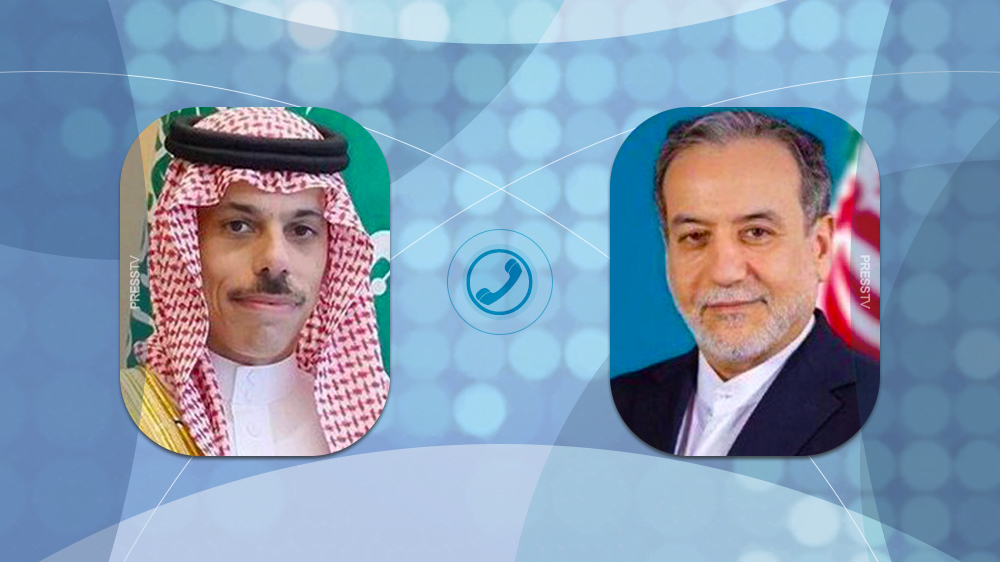Saudi crown prince after normalizing Israel ties at expense of Palestinian issue, author says
Driven by succession plans and the failure of the aggressive policies of the Riyadh regime, Saudi Crown Prince Mohammed Bin Salman has engaged in a process of normalizing relations with Israel at the expense of the "Palestinian issue," an author says.
Ibrahim Fraihat, who is an international Conflict Resolution Professor at the Doha Institute for Graduate Studies, wrote in an article published on Huffington Post that the normalization could be "detrimental to both Palestine and Saudi Arabia."
“But taking concrete measures to end the Arab boycott of Israel, without reaching a just solution to the Palestinian issue first, will be detrimental to both Palestine and Saudi Arabia,” said the author, who is also an affiliate scholar at Georgetown University.
Saudi Arabia summoned Palestinian Authority President Mahmoud Abbas to Riyadh last week to convince him to accept a peace plan put forward by US President Donald Trump’s special adviser Jared Kushner.
“Abbas’ cooperation is essential for Saudi-Israeli normalization to proceed; without it, the Saudi move would be seen as a betrayal to the Arab and Muslim position on Palestine,” Fraihat said.
“Although not much has been revealed about what really happened during Abbas’ visit to Riyadh, some reports talk about the Saudi leadership pressuring Abbas to accept whatever plan Kushner puts forward, or to resign,” he added.
According to the author, the Kushner deal will not do even minimum justice to the Palestinian national project.
“While the deal offers strategic gains to Israel, such as ending a Saudi Arab boycott, it offers only tactical gains for the Palestinians, such as financial assistance, prisoners’ release, and a silent, partial freeze of settlement activities outside the large settlement blocs.”
"What is clear, however, is that Saudi Arabia will proceed with its normalization efforts with Israel, with or without Abbas. The way MBS (the Saudi Crown Prince) is managing succession at home and escalation with Iran abroad suggests that he is up for making radical decisions."
"But his move on Israel might not work as well as some of his other bold policies have. In fact, he might end up shooting himself in the foot. Pushing through with the Kushner deal would mean acting against the consensus of Arab and Muslim countries, which reject normalization with Israel without a fair and just solution to the Palestinian cause."
Kushner, who is Trump’s son-in-law and who entered the White House largely because of that relation, has been causing unease among professionals in US politics with his reckless forays into Middle Eastern politics. The 36-year-old has had no prior career in diplomacy or governance and, like his father-in-law, was in real estate before Trump won the US presidential election in November 2016.
Lately, Kushner has been in substantial contact with officials in Saudi Arabia and the United Arab Emirates, reportedly forging a close relationship with young but powerful leaders in those countries.
Both Riyadh and Abu Dhabi have adopted an aggressive regional policy, waging a military aggression on Yemen, targeting Qatar with a diplomatic and economic war, and attempting to fracture Lebanon’s government.
In mid-November, a Lebanese paper published a secret document that showed that the Saudis were willing to normalize relations with Israel as part of a US-led Israeli-Palestinian peace effort and unite Saudi-allied countries against Iran.
The document, published by the Al-Akhbar daily, was a letter from Saudi Foreign Minister Adel al-Jubeir to bin Salman, explaining why it was in the kingdom’s interest to normalize relations with Israel. The letter goes on to say that a rapprochement between Saudi Arabia and Israel has risks for the kingdom due to the strength of the Palestinian cause among Muslims.
The Saudis' willingness to boost ties with Israel has offended several Arab countries, including Jordan.
As for the Palestinian refugee issue, the letter says the Saudis would be willing to help the estimated five million Palestinian refugees worldwide settle in the host countries rather than being brought back to Israel.
The Israeli military’s chief-of-staff, Gadi Eizenkot, recently said that Israel was ready to share intelligence with Saudi Arabia on Iran.
Israeli Energy Minister Yuval Steinitz has indicated that Israel has had secret contacts with Saudi Arabia and other Arab countries over their mutual concerns about Iran, an apparent first acknowledgment by a senior official about covert dealings. He made the comments on November 19 but he did not specify the nature of the contacts.
Furthermore, Israeli Communications Minister Ayoub Kara extended a warm invitation to Saudi Arabia’s Grand Mufti Abdul Aziz Al Sheikh to visit Israel for what he said were his friendly comments about the kingdom.
The Israeli minister of military affairs has also recently extended the hand of friendship to Arab countries, calling on them to form an alliance against Iran.
Settlers served lavish lunch in Israeli prison holding fasting Palestinians
VIDEO | Press TV's news headlines
Hezbollah says won’t hesitate to take proper action against aggression
Iran to US: Sanctions and war failed; try diplomacy and respect
VIDEO | Afghanistan-Pakistan tensions rise after cross-border strikes
Israeli settlers set mosque ablaze in West Bank during Ramadan
Nouri al-Maliki vows not to withdraw bid for Iraq’s premiership
OIC calls emergency summit as Israel accelerates West Bank expansion














 This makes it easy to access the Press TV website
This makes it easy to access the Press TV website